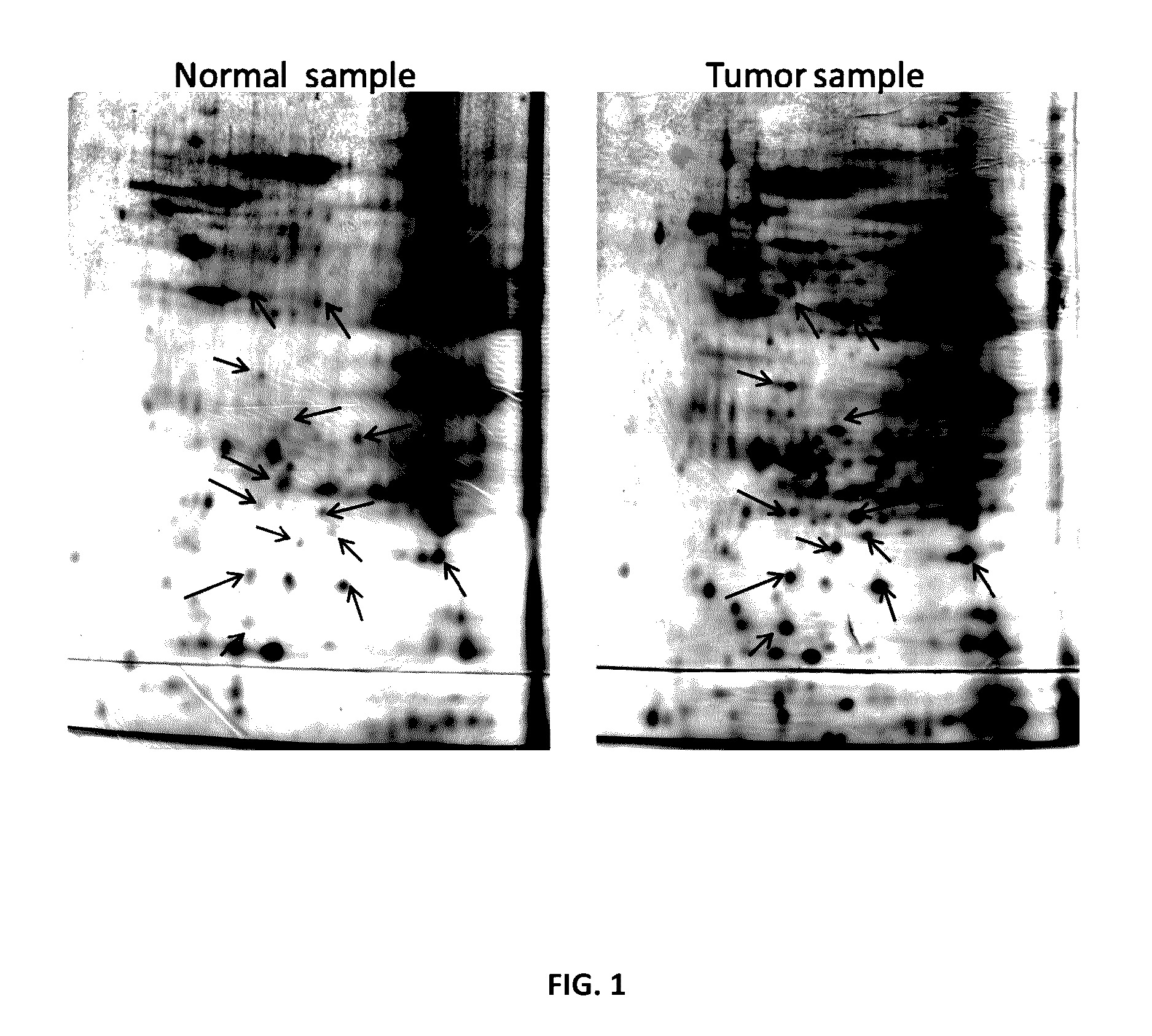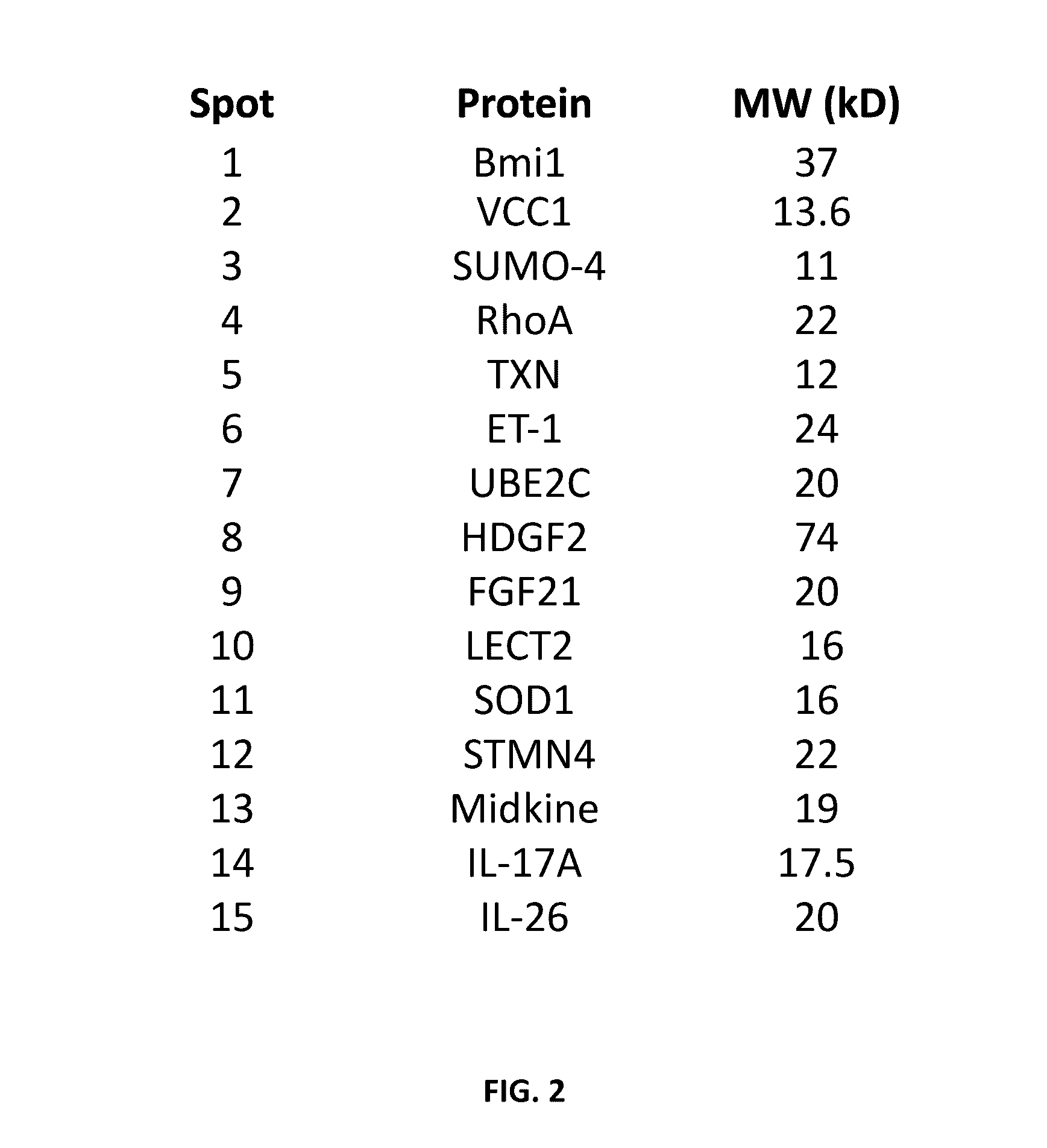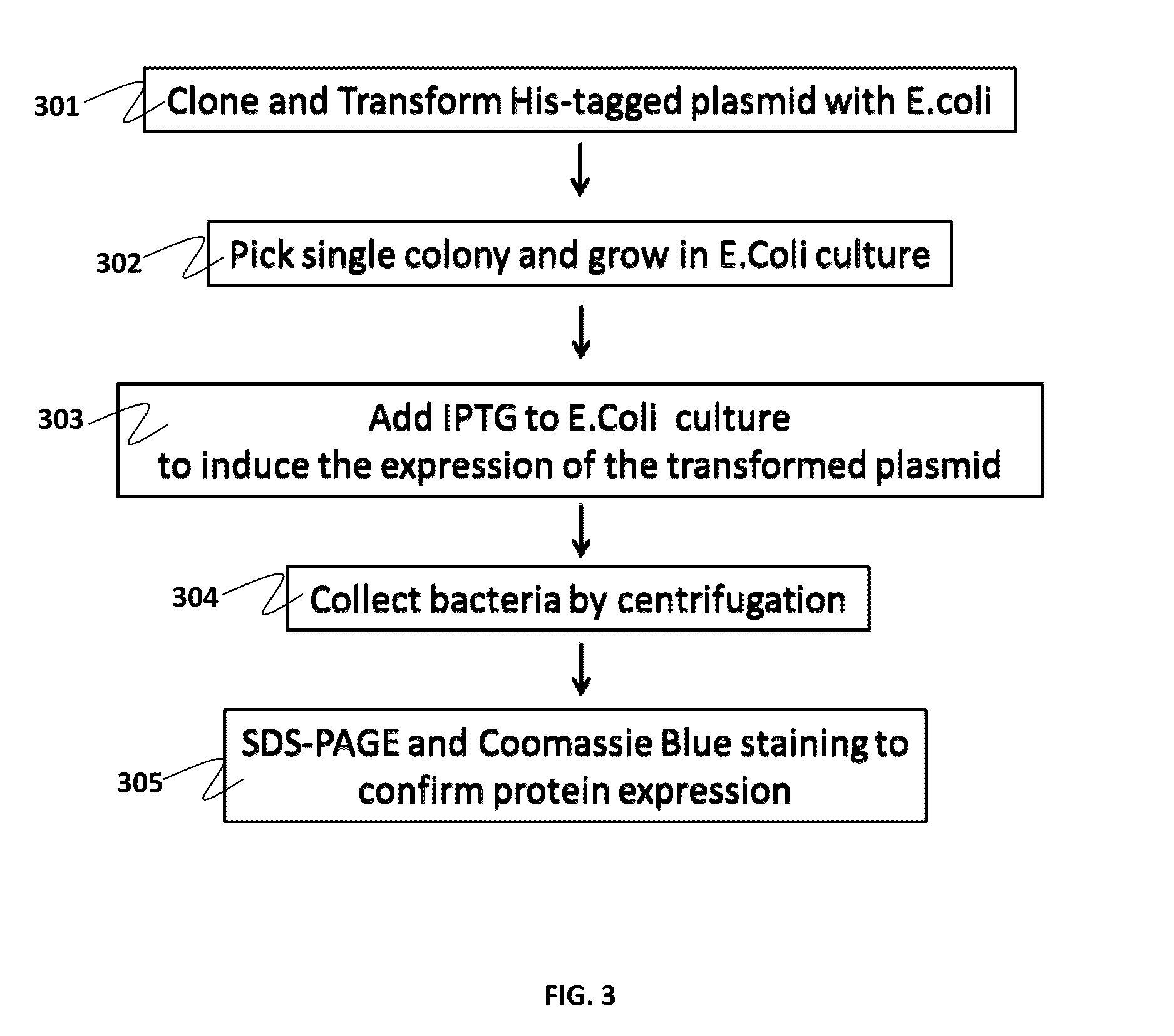Specific biomarker set for non-invasive diagnosis of liver cancer
a biomarker and liver cancer technology, applied in the field of specific biomarker sets for non-invasive diagnosis of liver cancer, can solve the problems of high mortality rate, afp test, excessive false positive, etc., and achieve the effect of higher fluorescent intensity and higher expression of the corresponding biomarkers
- Summary
- Abstract
- Description
- Claims
- Application Information
AI Technical Summary
Benefits of technology
Problems solved by technology
Method used
Image
Examples
example 1a
Protein Extraction from Patients' Biopsies
[0060]500 mg of the paired patients' biopsies (tumor biopsy versus juxtaposed normal tissue) are collected and washed with PBS. The tissues are frozen by submerging into liquid nitrogen and immediately homogenized with pestle and mortar. To the homogenized samples, lysis solution (8M Urea, 4% CHAPS, 2% IPG Buffer, 0.2 mg / ml PMSF) is added, then vortex for at least 5 min until the tissues are completely dispersed. The lysates are then clarified by centrifugation at 14,000 rpm for 10 minutes at 4° C. The supernatants are further cleaned up by 2D Clean Up kit (Amersham) to remove the salt and impurities. The pellets are resuspended with minimum volume of Rehydration Solution (No DTT & IPG Buffer added). The protein concentrations are then measured by Bio-Rad protein assay and aliquots of 200 g / per tube are stored at −70° C.
example 1b
Resolving Proteins by Two-Dimensional Electrophoresis
[0061]To 1 ml rehydration stock solution, 2.8 mg DTT, 5 μl pharmalyte or IPG Buffer, and 2 μl bromophenol blue are added. 50-100 μg of protein sample is added to the 13 cm Immobiline DryStrip (IPG strip) containing 250 μl of rehydration solution. After removing the protective cover, the IPG strip is positioned in the strip holder with the gel side facing down, and overlaid with Cover Fluid to prevent dehydration during electrophoresis. The strip is then placed on to Ettan IPGphor (Amersham) for isoelectric focusing (first dimensional electrophoresis).
[0062]After the first-dimensional electrophoresis, the IPG strip is equilibrated with equilibrate solution (6 M Urea 2% SDS, 50 mM Tris HCl pH 6.8, 30% Glycerol, 0.002% Bromophenol blue, 100 mg DTT per 10 ml buffer and 250 mg IAA per 10 ml buffer), and then washed with 1×SDS running Buffer for 4-5 times. The IPG strip is placed on top of the second-dimension gel and overlaid with seal...
example 2a
SEQ ID NO.1
Amino Acid Sequence of Bmi1
[0064]
MHRTTRIKITELNPHLMCVLCGGYFIDATTIIECLHSFCKTCIVRYLETSKYCPICDVQVHKTRPLLNIRSDKTLQDIVYKLVPGLFKNEMKRRRDFYAAHPSADAANGSNEDRGEVADEDKRIITDDEIISLSIEFFDQNRLDRKVNKDKEKSKEEVNDKRYLRCPAAMTVMHLRKFLRSKMDIPNTFQIDVMYEEEPLKDYYTLMDIAYIYTWRRNGPLPLKYRVRPTCKRMKISHQRDGLTNAGELESDSGSDKANSPAGGIPSTSSCLPSPSTPVQSPHPQFPHISSTMNGTSNSPSGNHQSSFANRPRKSSVNGSSATSSG
PUM
| Property | Measurement | Unit |
|---|---|---|
| pH | aaaaa | aaaaa |
| total volume | aaaaa | aaaaa |
| temperature | aaaaa | aaaaa |
Abstract
Description
Claims
Application Information
 Login to View More
Login to View More - R&D
- Intellectual Property
- Life Sciences
- Materials
- Tech Scout
- Unparalleled Data Quality
- Higher Quality Content
- 60% Fewer Hallucinations
Browse by: Latest US Patents, China's latest patents, Technical Efficacy Thesaurus, Application Domain, Technology Topic, Popular Technical Reports.
© 2025 PatSnap. All rights reserved.Legal|Privacy policy|Modern Slavery Act Transparency Statement|Sitemap|About US| Contact US: help@patsnap.com



